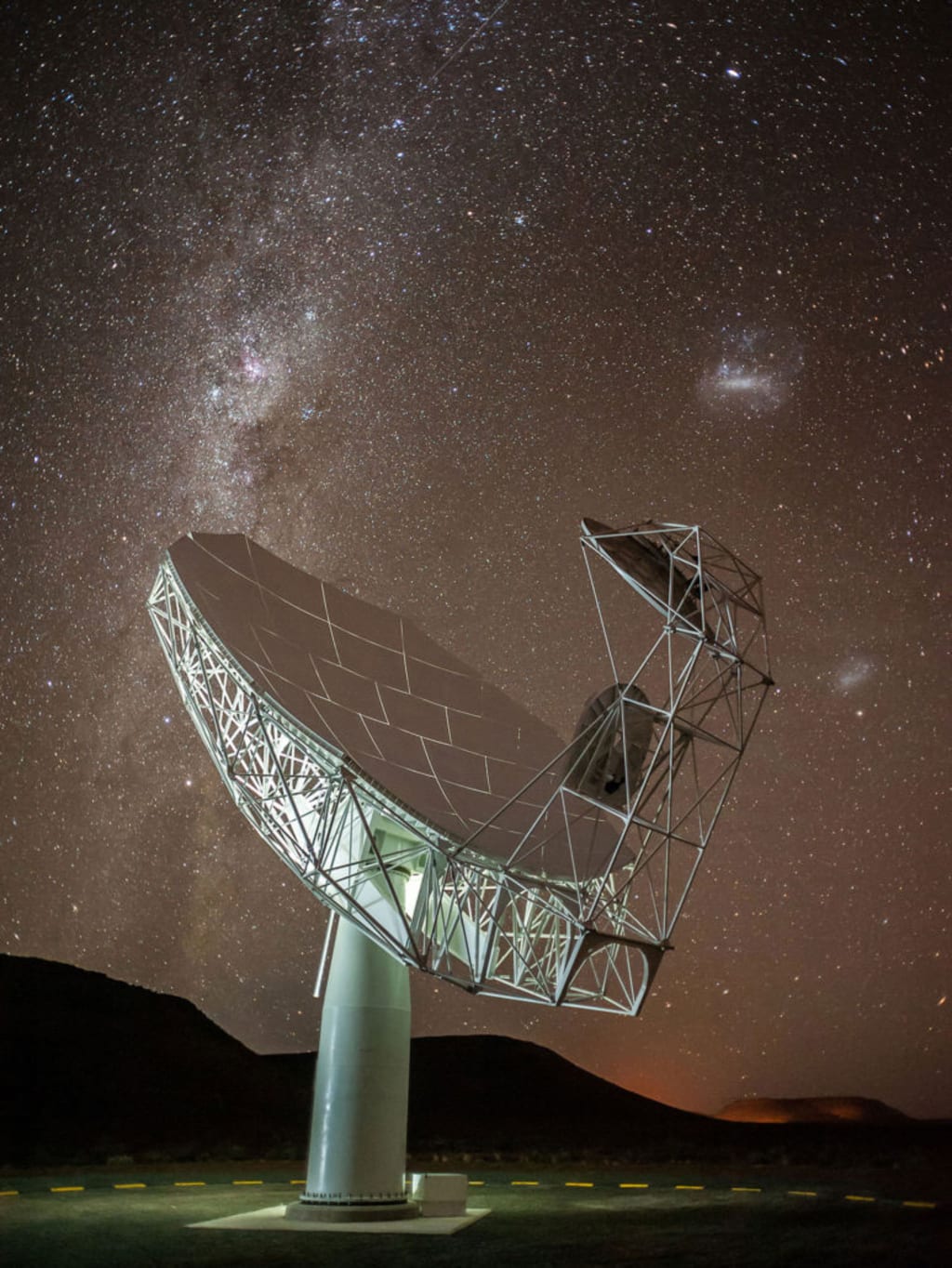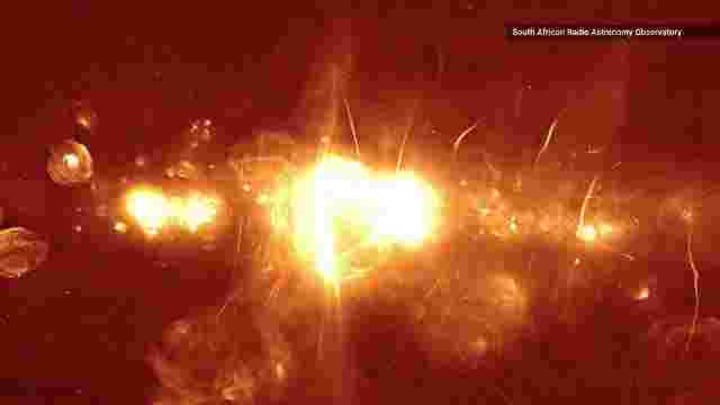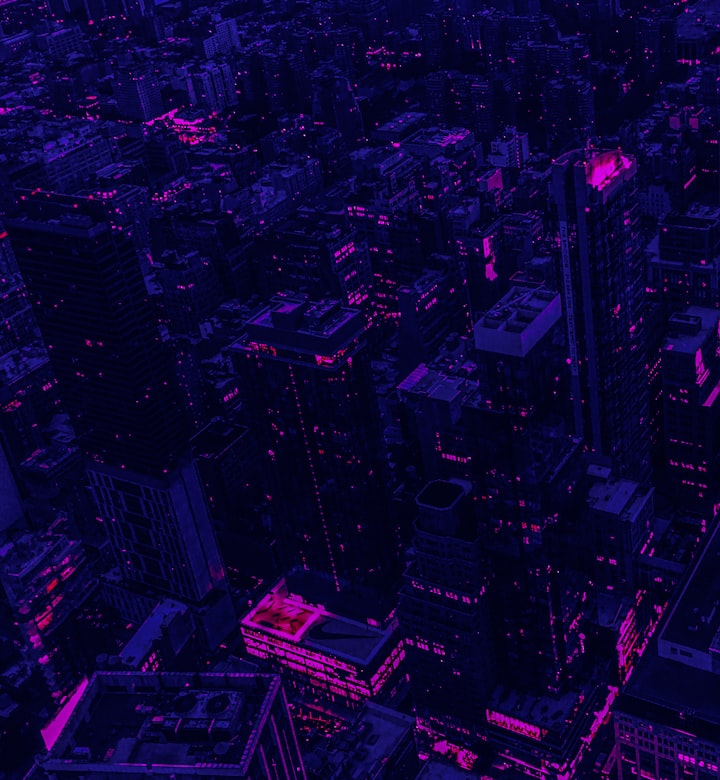The MeerKAT Telescope
Our Earth is being turned into an Intergalactic Telescope and now we can see the center of where life begins!

Earth now has the clearest images of the black hole at the center of our galaxy thanks to The MeerKAT Telescope, South Africa’s new super telescope! Originally the Karoo Array Telescope (KAT), the MeerKAT also gets its name from the small carnivorous animal that belongs to the Mongoose family populating South Africa. The observation project of galaxies, dark matter, and the cosmic web also has been gifted the name of the South African Mongoose family the Meerkat is part of: Project MHONGOOSE is a blend for MeerKAT HI Observations of Nearby Galactic Objects: Observing Southern Emitters. Whew! Scientists sure know how to shorten a mouthful, don’t they?
In the remote town of Carnarvon in South Africa, lies a 64-dish radio telescope called 'MeerKAT'. After it completes the merge with Square Kilometer Array (SKA) and becomes the biggest most powerful telescope by 2024, we can start to learn more about the origins of life in the Universe. MeerKAT is a group of 64 dish receivers, with dish antennae that measure 44-feet each (I think I got that right!) and is a joint effort by SKA to build the Earth's largest telescope! Right now, they met their goal for MeerKAT to span the continents of Australia and Africa. There are more than 200 technicians, engineers and young scientists on the South African Team that get credit for the creation of MeerKAT. Thanks guys!
What is a Black Hole?
The basic idea is that black holes are in the middle of every galaxy, just like our Milky Way. Contrary to its name, Black holes are not black. Stephen Hawking had a theory and proved himself correct: Black Holes emit light. The bright glow that black holes give off is a radiation named 'Hawking Radiation' because of that theory he had, back in 1974. Most physicists have come to agree with him. It's also a belief that eventually all black holes will shrink down to nothing. The super heavy mass that makes up the middle, are virtual particles of matter and anti-matter energy. These virtual particles attract to each other in pairs, kind of like magnets, one being positive energy, and the other negative energy. When they get free of the center and are just on the horizon of their black hole, the positive energy particles shoot off to outer space, but first it annihilates the negative energy particles. That's the light you see. In a way, black holes are like giant space recyclers. According to Stephen Hawking, what goes in, will eventually come out in a different form of energy. Therefore, physicists believe the mass of black holes will get less and less over time. The time being millions upon billions of Earth years, I guess, since the size of a galaxy is HUGE!
What does our Black Hole look like?
The chief scientist at the Radio Astronomy Observatory in South Africa, Fernando Camilo, just released the image (below) that the MeerKAT has taken of the center of our Milky Way Galaxy. A previous groundbreaking photograph MeerKAT had taken was an image that clarified 1,300 galaxies in an area that only 70 were thought to exist.
Center of Milky Way Galaxy, by MeerKAT

Black Hole in the center of the Milky Way Galaxy - 2018
The MeerKAT image of the black hole, some 25,000-odd light-years away, is the clearest ever managed by any observatory! Its power exceeds Hubble Space Telescope by at least 10,000. By the time MeerKAT is fully operational, towards the end of 2024, over 3,000 dishes will be spread over several countries. Future objectives by MeerKAT will be searching for intelligent life in the universe and collaborating with information from NASA space probes. Besides the area surrounding the above supermassive black hole, and other black holes, MeerKAT will help us get up close and personal to exploding stars, dark energy, and then we can REALLY begin to explore the origins of life!
Stephen Hawking in a nutshell

Stephen Hawking on stage during a lecture - NASA
Stephen Hawking had been born in Oxford, England on January 8, 1942. At the age of 21, he was stricken with ALS while he was still a graduate student. ALS, or amyotrophic lateral sclerosis, is a progressive neurodegenerative disease that affects nerve cells in the brain and the spinal cord. It is also known as Lou Gehrig's Disease. Even though his doctors didn’t expect him to live very long, they were wrong. He was eventually confined to a wheelchair, his bodily control reduced to voluntary eye movements and the flexing of his finger. But oh, how his mind did roam, as he meditated through the mysteries of the cosmos! He was 76 when he passed earlier this year.
This quote I read sums up what an optimist Stephen Hawking was: “The message of this lecture is that black holes ain’t as black as they are painted,” he said. “If you feel you are in a black hole, don’t give up. There is a way out.”
And here's another, about the particles coming out of black holes, that shows some more of his sense of humor: “I wasn’t looking for them at all,” he recalled in 1978. “I merely tripped over them. I was rather annoyed.”
*Did you like what you read? Check out my profile for more!
About the Creator
Lady Sunday
I'm a self-publishing author of fiction and I love to research and write creative non-fiction.





Comments
There are no comments for this story
Be the first to respond and start the conversation.